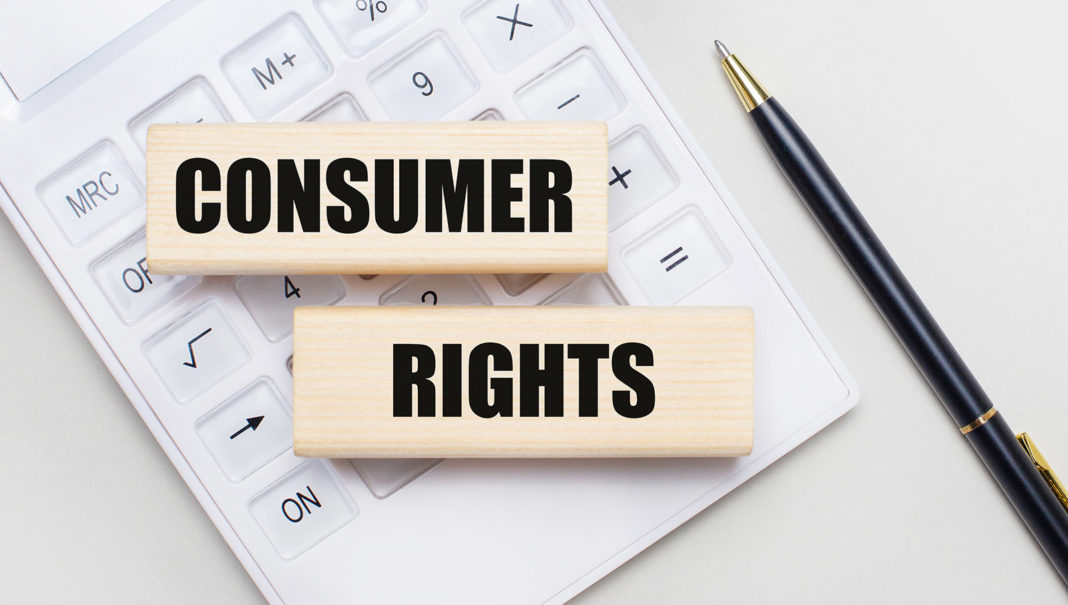It’s that time of year where we are all purchasing Christmas presents for friends and family. Is there anything we should keep in mind?
The new Consumer Rights Act 2022, came into force on the 28th November 2022.
The Consumer Rights Act will bring about a number of positive changes for consumers:
- Stronger rights to redress for faulty goods, including the straightforward option of cancelling a faulty purchase within 30 days for a full refund
- Greater accountability for service providers, requiring tradespersons and vendors to provide tangible redress if services are not up to the agreed standard
- A ban on fake reviews, with businesses prohibited from posting – or paying others to post – fake reviews for their products
- New rules for online marketplaces like eBay, Amazon and Etsy, which will have to meet transparency requirements on search rankings and seller details
- Protection for consumers of digital content and services, including the right to software updates
VOUCHERS
A gift voucher is a voucher given as a present that you can exchange for goods or services.
New gift vouchers legislation
After 2 December 2019, the Consumer Protection (Gift Vouchers) Act 2019 sets out new rules for gift vouchers. The new rules state that:
Gift vouchers must have no expiry date or be valid for at least 5 years.
Traders cannot specify that a gift voucher is spent in one transaction.
Traders cannot charge a fee to change the name on a gift voucher, (if you have to register a name on the voucher).
If the balance remaining on a gift voucher is more than €1 after you buy something with it, a trader must reimburse the balance to you. They can give you cash, make an electronic transfer or give you another gift voucher.
Vouchers and gift cards sold before 2 December 2019. The expiry period and the terms and conditions that applied at the time of purchase apply to these vouchers.
ONLINE SHOPPING
Buying online, what do I need to know to stay safe:
Check where the business is based: If the business is based outside of the EU, you may consider finding an alternative EU store, to ensure you have stronger rights should an issue arise in the future.
Buy from reputable retailers: When shopping online, it’s important to do some quick research, check reviews and social media pages.
Check the cancellation & returns policy: When buying goods online from non-EU based businesses, read the T&Cs on their website and check if you can return or cancel your order, if you change your mind.
Check for additional taxes or charges: If you are buying from a business outside of the EU, be sure to read the T&Cs on their website for details of any import taxes or additional charges that you may have to pay – for example, VAT or customs charges – on delivery. This can apply to purchases from UK businesses also.
SECURITY
Check that the website is secure: Before you put in your card details look out for an ‘s’ after ‘http’ at the beginning of the url and a padlock symbol in your browser’s toolbar, which shows the website is secure.
Customs charges: You may have to pay VAT if an item comes from the UK or outside the EU. You may have to pay further customs charges if the item has a value of €150 or more if it comes from the UK or outside the EU
Customs and Vat will be collected either at source from the website or you will receive a notification from the courier and will have to pay this before delivery can happen.
Don’t click on any link or text message regarding additional charges for tax. We’ve all gotten them and generally they are not from a legitimate source. If you want to check if you owe vat or customs on a product ask the original supplier or the courier/post office directly.
RIGHT OF RETURN
Q. What is my ‘right to redress’ if I purchase a faulty product?
If you have a problem with something you have bought it is always the seller who must put things right. There are stronger rights to redress for faulty goods than previously under the new Act and this includes the straightforward option of cancelling a faulty purchase within 30 days for a full refund.
Q. What should I do if I am not satisfied with the quality of a product or service?
If you feel that a product is faulty or you are not happy with a service, you should:
Return the item to the seller (not the manufacturer)
Act as soon as you can – a delay can indicate that you have accepted faulty products
Don’t attempt to repair the item yourself or give it to anyone else to repair it
Make sure you have proof of purchase, for example a receipt or credit card statement
For services, keep all evidence of damage caused by poor work, for example take photos.
If a product is faulty within 6 months of purchase it is assumed the problem existed when you received it.
Q. Are there some situations where I cannot avail of a refund, repair or replacement?
You may have no grounds for redress if:
You were informed about the defect before you bought the item – for example, the goods were marked ‘shop-soiled’ or the car dealer told you a part needed replacing on a second-hand vehicle
The damage is caused by your own misuse or negligence – if the fault appears six months after it was received, you may have to prove that it was not caused by you
You made a mistake when buying the item – for example, buying a black dress instead of navy or entering the wrong dates for a flight
The fault is superficial and you examined the item before you bought it and should have seen the defect
Q. If I buy something in a shop but change my mind about it later, can I return the item to the shop and get a refund?
You are not automatically entitled to a refund when returning an item you bought in a shop because you have simply changed your mind. If there is nothing wrong with the item, then you have no legal right to return the goods. Whether or not you can get your money back will depend on the seller’s returns policy.
However, most sellers voluntarily allow customers to return or replace goods during a certain time period. The seller may offer a refund, exchange or credit note as a goodwill gesture. For this reason, you should check what the seller’s returns policy is before you buy.
If the seller accepts returns then there is usually an obligation that:
You make sure the items are in good condition
The original labels and tags are attached
You can provide proof of purchase (for example, a receipt)
Q. I don’t like my gift. What do I do now?
Some shops may exchange an item if you received it as a gift and want to exchange it for something else. In this case, you will need the receipt or a gift receipt from the person who gave it to you. There is no legal requirement for shops to exchange unwanted gifts.
Q. Buying Online- more rights?
The Consumer Rights Directive 2011/83/EU (CRD), gives you extra rights when you buy online from sellers based in Ireland and other EU countries. Under the CRD, you have 14 calendar days to change your mind without having to give a reason. This right to cancel is also known as the ‘cooling-off period’. These rights do not apply to deals where you buy from a private individual or if you buy from a trader based outside the EU.
Q. What are my rights when I shop in the Sales?
You have the same rights shopping in the sales as you do at any other time of the year. If an item is faulty, your rights do not change just because it was on sale.
Always remember a consumer has the right to expect a product to be of satisfactory quality, fit for purpose and as described.
Our telephone lines are monitored from 9-5 Monday to Friday in North & East Cork where we have centres in Fermoy, Mallow, Cobh, Mitchelstown and Youghal. We are also open to drop in callers and take face-to-face appointments in Fermoy, Mallow and Youghal. Full details of opening times for these centres and for CICs nationally are up on our website.








